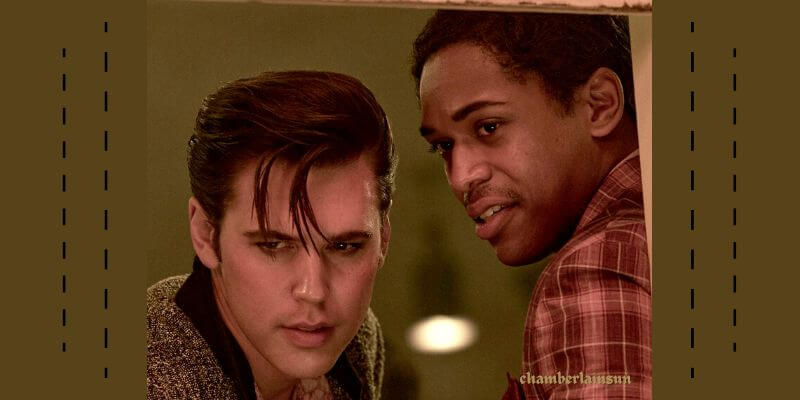A young Elvis glances into a juke bar in his birthplace of Tupelo, Mississippi, in the new Baz Luhrmann movie dramatizing the life and career of Elvis Presley, and his jaw drops. Arthur “Big Boy” Crudup sings while a man and a lady dance in unison inside.
Elvis is enthralled, startled into stillness, then runs to a Pentecostal revival tent and enters the worship service from the front. Elvis is being pursued by a friend who attempts to drag him away, but the pastor lets Elvis stay.
‘Elvis’: How Do Baz Luhrmann Depicts Contested Ties To Black Artistry?
The scenario is based on a tale of his friend, Sam Bell, who passed away at the age of 85 last year, once told Luhrmann. But despite its startling excess, the portrayal is unmistakably Luhrmann. By eventually using a split-screen to compare Crudup’s rendition of “That’s All Right” with Elvis (Austin Butler) playing the song as his debut single, the Australian director depicts Elvis’s spiritual conversion as well as musical.

Crudup (Gary Clark Jr.), Big Mama Thornton (Shonka Dukureh), Sister Rosetta Tharpe (Yola), and Little Richard are just a few of the Black musicians that “Elvis,” which hits theaters on Friday, makes a point of highlighting (Alton Mason). Elvis, who is struggling with the pressure of his increasing fame, seeks refuge on Memphis’s Beale Street, where he frequents nightclubs alongside B.B. King (Kelvin Harrison Jr.).
Arguments over whether the White musical icon’s practice of borrowing from the work of his Black colleagues constituted appropriation and what that meant for his musical legacy has persisted for years. Direct comparisons, like the one with the “That’s All Right” moment and another with Big Mama Thornton’s original performance of “Hound Dog,” don’t necessarily settle the argument made by “Elvis.”
Instead, it makes an effort to draw attention to a common adversary: an unfair music industry in an unjust society, into which Elvis is thrown by his ruthless, deceitful manager, Col. Tom Parker (Tom Hanks).
Through various updates, “Elvis” frequently indicates the passing of time. It makes reference to when Elvis called Fats Domino “the genuine king of rock-and-roll”; Domino’s initial single, “The Fat Man,” was a hit years before Elvis cut his first record with Sam Phillips at Sun Records.
As widely regarded as “the godmother of rock-and-roll,” Sister Rosetta Tharpe is also briefly but poignantly portrayed in the movie. The genre-defying English singer-songwriter Yola, who plays Sister Rosetta in “Elvis,” was recently interviewed by Vulture. According to Luhrmann, this interview effectively captures the tension in this situation: Yola said, “He’s the appropriator” is the simple narrative. “No, the fricking appropriator is the system,”
The contrast, in Luhrmann’s words, between “following the route or DNA of where your musical influence originates from” and “pretending that your creation arose out of a vacuum” is significant.
The fact that Elvis kept repeating, “I didn’t make this,” is both tragic and beautiful, stated Luhrmann. “You know, far back in Tupelo, I witnessed old Arthur Crudup smash his box. I believed that if I could do it, I would be a music man unlike anyone else.”

